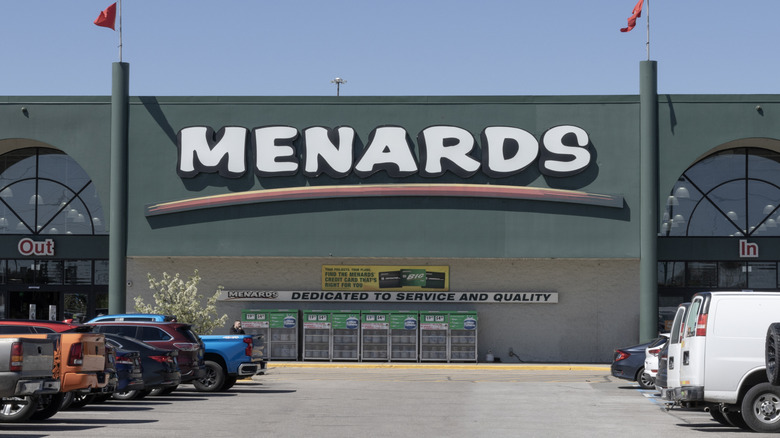Menards Lawsuits Explained: How The Hardware Chain Continues To Find Legal Trouble
Menards built its empire on razor-thin margins and tight internal control. With more than 300 locations across the Midwest and as one of America's largest privately owned hardware chains, Menards has never had to answer to shareholders — just to customers, employees, and regulators. But over the past two decades, Menards has become nearly as well-known for legal trouble as it is for stocking tools you didn't know you needed.
Every big retailer faces lawsuits. Menards, however, keeps ending up in public courtrooms. From labor law violations and wage disputes to workplace accidents and controversial marketing tactics, Menards has shown up in courtrooms across multiple states. The company has won some cases and settled others; some of those fights stayed quiet, others exploded into major headlines, state penalties, or multimillion-dollar class actions. Among them, labor lawsuits have claimed the company docked workers for short breaks, required off-the-clock training, and skirted overtime pay rules. Other cases center on in-store safety, including fatal accidents involving forklifts. Customers have sued Menards as well, arguing that its long-running 11% rebate promotions — later matched by Home Depot — mislead shoppers about their actual savings.
Menards keeps facing the same lawsuits in different places — and for the same reasons. Its lean, cost-driven model may boost efficiency, but it also invites recurring risk. For a company built on control, its growing courtroom record tells a far messier story.
Employee lawsuits: unpaid breaks, overtime gaps, and workplace safety
Menards' most persistent legal troubles come from within its own workforce. Employees describe a system that feels built to extract extra labor at no cost. In two multi-state class actions, hourly workers alleged they had to attend mandatory meetings and complete "In-Home Training" off the clock — including passing required tests — without pay, violating federal and state wage laws. Those lawsuits also allege Menards made hourly workers clock out for sub-twenty-minute breaks and miscalculated the regular rate used to calculate overtime wages.
In 2024, the Minnesota Department of Labor found Menards had deducted wages from an employee 103 times for pumping breast milk on the clock, then suspended her for speaking up. The agency issued a consent order requiring Menards to pay back wages and damages, implement policy overhauls, conduct a statewide audit, and pay a $15,000 penalty. It was a rare example of Menards' internal policies catching up with them in full public view.
That's just the wage side. Menards' safety practices have come under fire, too. In 2017, a 27-year-old worker at a Minnesota store was killed when his forklift tipped over, trapping him underneath. Four years later, another tragedy struck when a 19-year-old trainee at a different Minnesota location was crushed by a collapsing stack of lumber during a forklift operation. His family's wrongful death lawsuit claims he was left unsupervised to manage a load far beyond what his forklift could handle. Minnesota OSHA later fined Menards $25,000 after the 2021 case, a small penalty for two fatal accidents in just four years.
Customer lawsuits: fatal accidents and the legal firewall of arbitration
Customers have taken Menards to court — and sometimes won big. In Illinois, a shopper struck by a forklift received a six-million-dollar jury verdict. The case didn't end there; Menards' insurer sued the company to get its share of the payout back, but lost. In Michigan, a St. Joseph County jury found Menards negligent after an employee attempted to retrieve large plastic bins from a high shelf, which fell and struck 79-year-old Bill McBride, who later died from a brain bleed. The jury awarded $4.58 million to McBride's estate, assigning 99% of the fault to Menards. As of October 2025, the company's appeal is still pending.
Menards' "11% Off Everything" rebate program has been a magnet for lawsuits of its own. Customers claim the rebate's actual value drops once you factor in mailing costs, delays, and unclear rules. In Rikkers v. Menard, a Wisconsin federal judge dismissed the claims in Menard's favor, calling the dispute "a math problem masquerading as a lawsuit."
After being sued over hidden pickup fees on online orders, Menards began leaning on arbitration to keep similar disputes out of public court. Arbitration is a private legal process that resolves disputes without a trial and usually leaves no record open to the public. Big retailers like Menards include arbitration clauses in their terms and conditions — both for employees and online customers — and because most people don't read the fine print, they often don't realize what rights they've signed away. In May 2025, the Sixth Circuit applied the same reasoning to a former forklift driver's sexual harassment claim, ruling that she had "repeatedly and unequivocally" agreed to resolve her case in private arbitration.


